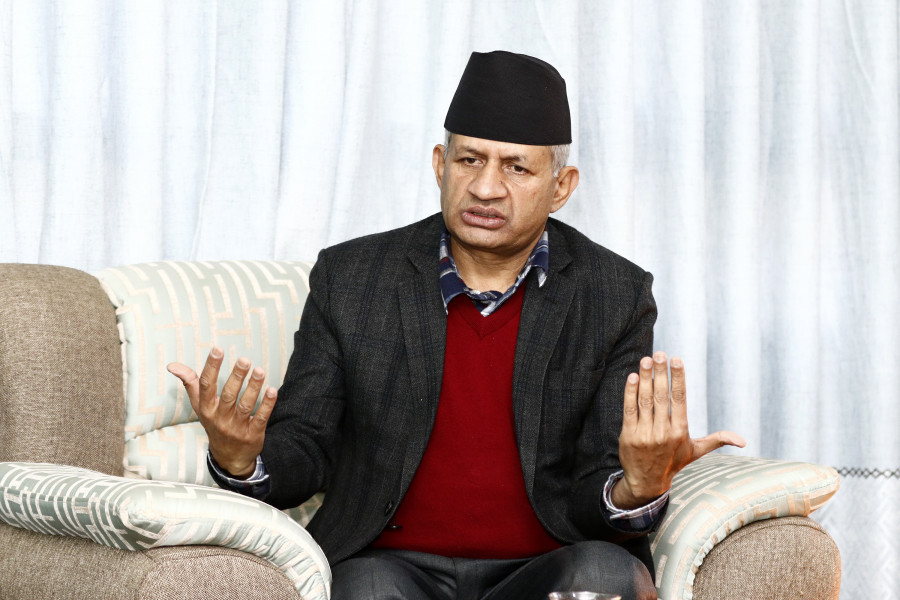National
Foreign Minister’s assertion that MCC will be approved puts pressure on ruling party
Pradeep Gyawali, during a press conference, urged everyone to base discussions on facts—not fiction
Anil Giri
At a time when a section of the ruling party has confronted its own leadership over the decision to approve the Millennium Challenge Corporation Compact, Foreign Minister Pradeep Gyawali assured on Monday that the pact will be approved by the ongoing winter session of Parliament, adding pressure on a divided Nepal Communist Party to reach an early conclusion.
The ruling party has been divided over whether the $500million US grant to Nepal is part of the Indo-Pacific Strategy and if it should get House approval. The debate over MCC had taken central stage at the recently concluded Standing Committee meeting of the NCP. After failing to take a decision, the meeting had handed over the responsibility to take a final call to the nine-member Secretariat which itself hasn’t been able to make a decision.
A leader of the ruling party who is closely following the ongoing debate over the compact told the Post that the conflict is in part due to commitments made by a senior member to Chinese officials during the visit of Chinese President Xi Jinping. The leader, who agreed to speak on condition of anonymity because he was not allowed to divulge internal details, said the Chinese were provided ample reassurances that Nepal was committed to the Belt and Road Initiative and will not be the part of Indo-Pacific Strategy and will not approve the MCC from the House.
Dahal had also made a similar commitment with Chinese Foreign Minister Wang Yi who visited Nepal in September ahead of Xi. During his meeting with Wang, according to Chinese Foreign Ministry, Dahal had said that Nepal firmly adheres to the non-alignment policy, disapproves of the 'so-called Indo-Pacific strategy’, opposes any attempt to stop the development of China, and always believes that China's development is an opportunity for Nepal.
The statement on the US-led initiative comes at a time when Washington and Beijing are not only sparring with each other over trade and security issues, but also attempting to counter and contain each other’s strategies.
Foreign policy analysts say regardless of the dispute, the decision will entirely be Prime Minister KP Sharma Oli’s to make. “This is the prime minister’s system, so whatever Oli wants will be the final decision,” said former Foreign Secretary Madhuraman Acharya. “If the prime minister is not speaking on this matter and staying silent, it means the pact will be approved from the House.”
In the midst of the controversy, leaders close to Oli have been expressing willingness to approve MCC from the House. But another rival section led by another co-chair, Dahal, is opposing the compact, arguing that it cannot be approved if it is part of the Indo-Pacific Strategy.
At the press conference on Monday, Gyawali said that the Foreign Ministry has the final authority to speak on all matters related to foreign relations.
“The foreign ministry is the final authority to take a decision because we have to deal with diplomacy,” Gyawali said. “Let’s focus on facts and reality. The debate can take place but they must be based on informed and in-depth information.”
“I do not know what the party will decide, but what I know is the Parliament will approve it,” he added.




 16.12°C Kathmandu
16.12°C Kathmandu














